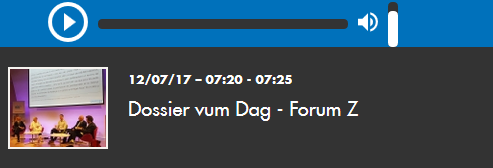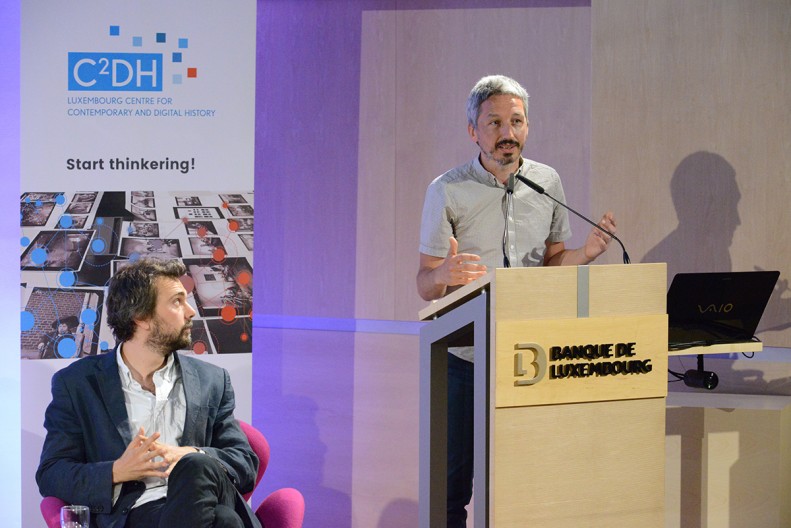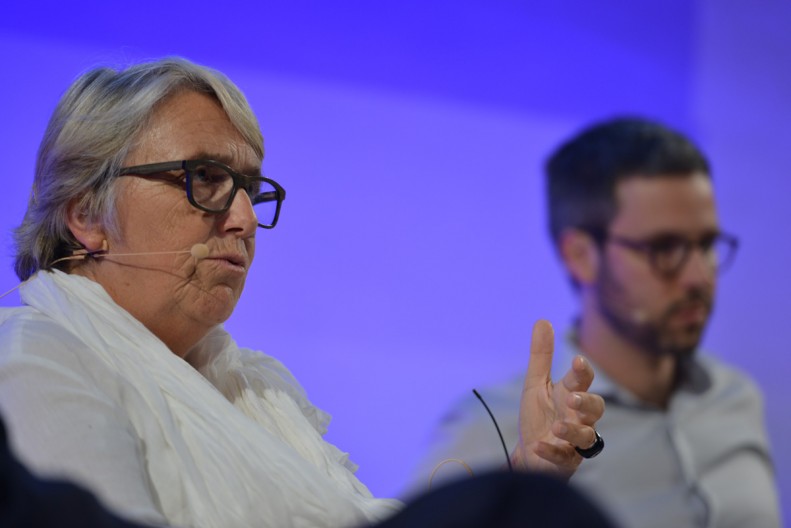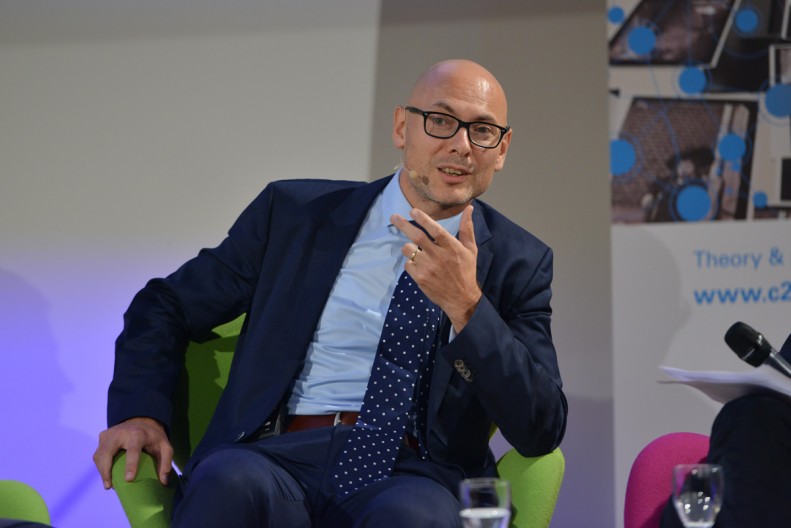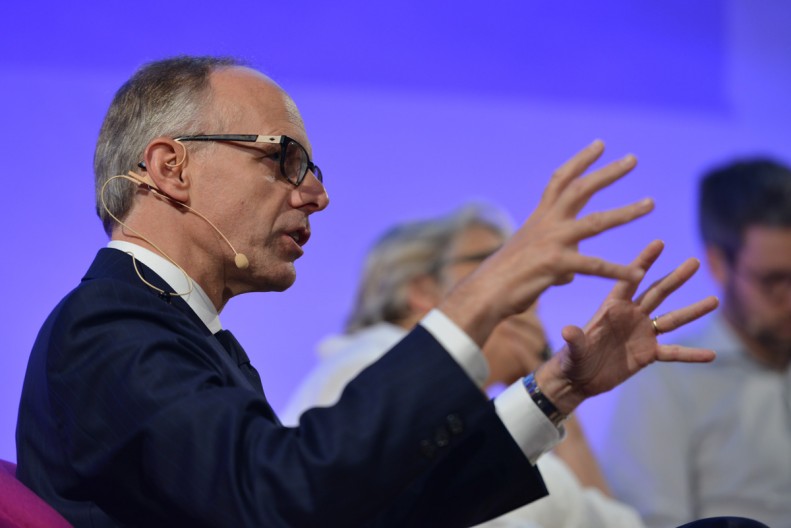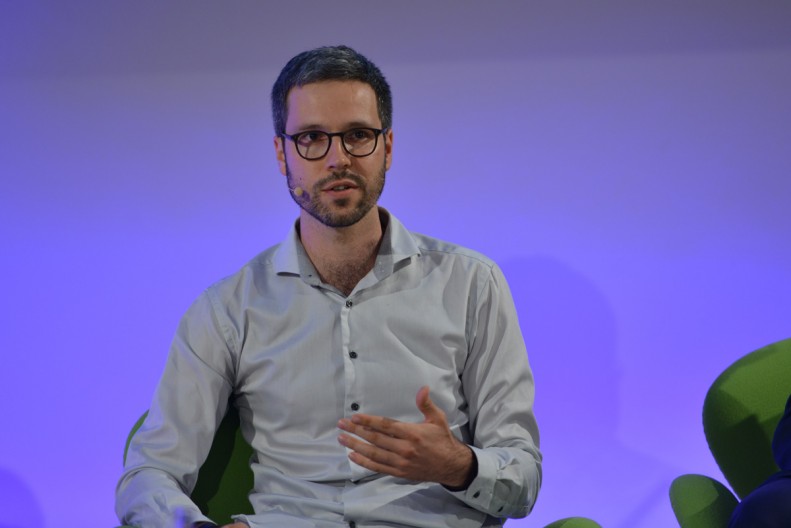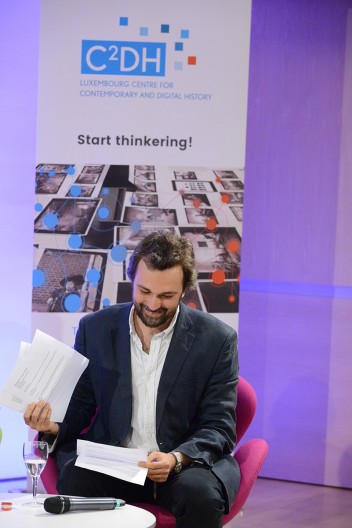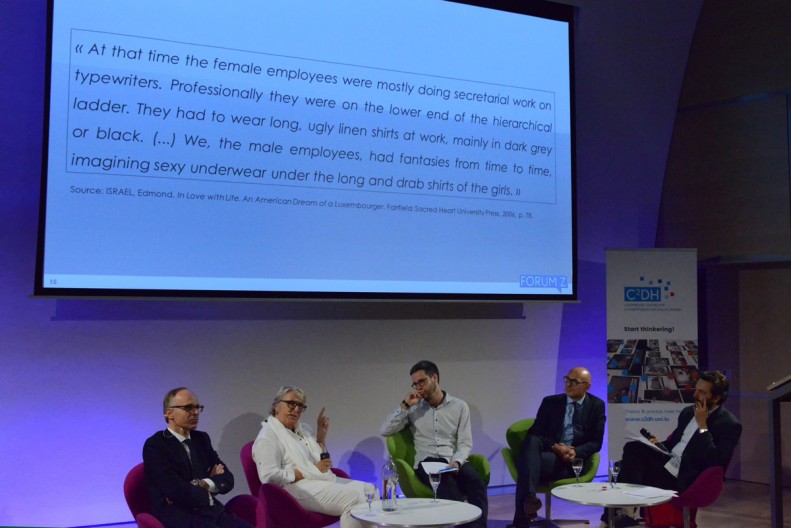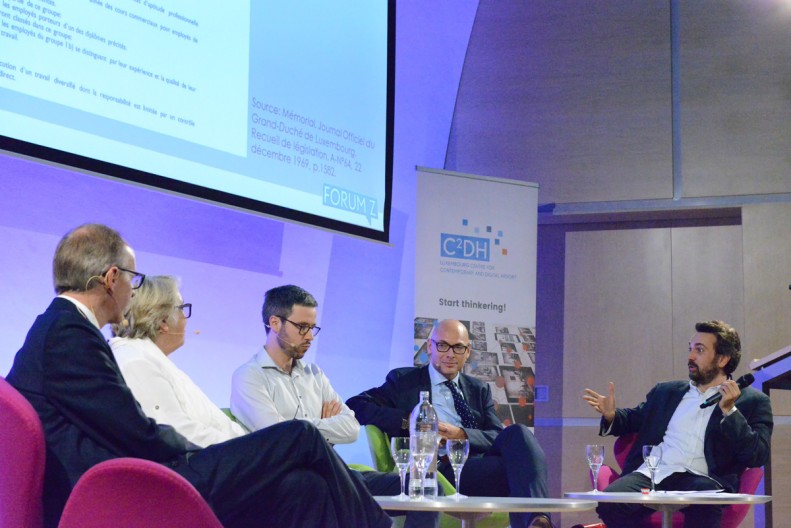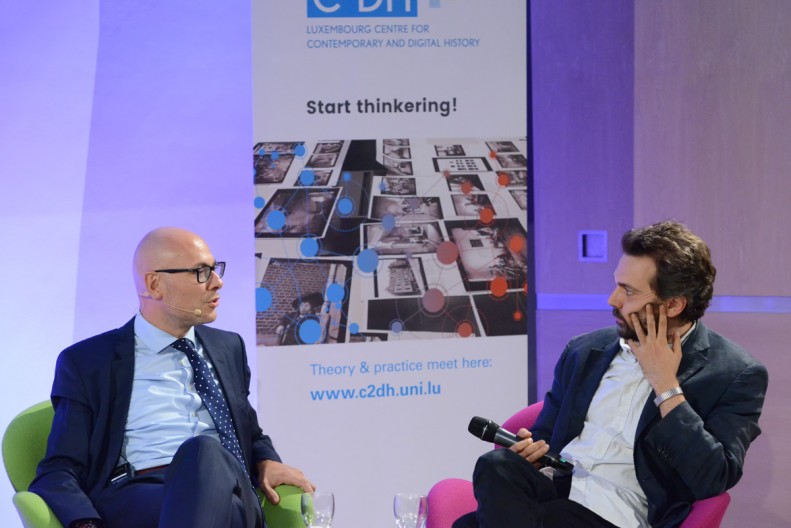The term ‘glocal’ is used by researchers to describe the particular interplay of global processes and local circumstances that have lead historically to complex contemporary phenomena. What better example is there of this than the quite recent development of a major international financial centre in a small independent country such as Luxembourg?
Before the event, the panellists had been given a number of sources relating to history of the Luxembourg financial centre. On stage, they were then asked to share their reactions to these documents with the audience. Besides the obvious technical and legal aspects such as holding companies or fiscal laws, the organisers had included sources on topics such as gender or technology. By inviting panellists from different backgrounds – the public and the private sector, bankers and auditors, finance professionals and academics – the organisers aimed to get a diverse input on how the currently embryonic history of the Luxembourg financial centre can and should be written in the near future.
A recurring topic of the evening was the access to source material that historians need, but that the owners are at times reluctant to grant because they are worried that their past will be judged in ways that they consider to be unfair or out of proper context. Indeed, the example of the 1929 law on holding companies – one of the main topics of the evening –provided ample opportunity to illustrate the spectrum of questions and opinions that exist around potentially thorny topics. The Swiss historian Thibaud Giddey contributed a number of reminders of how similar issues have surfaced in Switzerland and how they have been partly overcome in the past couple of decades. The result there has been a wide variety of historiography that explores the past of the Swiss financial centre in great detail and with remarkable attention to the specific context of each era.
By making the history of the Luxembourg financial centre one of its priorities, the C²DH strives to initiate a similar process in the Grand-Duchy. While oral history interviews were suggested as an important future project by researchers and finance professionals at the Forum Z, it is clear that they are but one step towards a level of access to source material that will allow historians to properly write the history of the Luxembourg centre in its specific local and global context. On the way there, a number of ‘cultural’ hurdles will have to be overcome by all involved parties, be it the adoption of new archival practices by the relevant public authorities, an increased culture of transparency by private holders of archival material, or the occasional reluctance of historians to tackle the particular technical challenges of finance.
